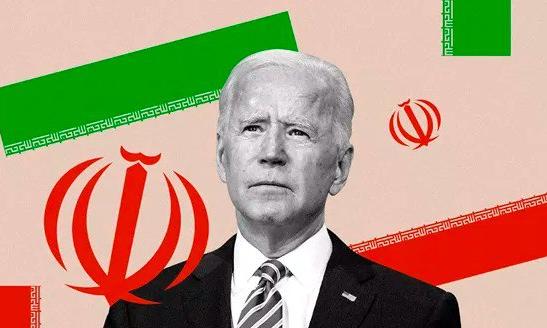
Biden’s warning to Iran underscores Israel can attack anyone, violate any rules
text_fieldsWith US President Joe Biden offering military support to Israel and sending warships to reinforce the Israeli military against the impending Iranian attack, the ongoing tension in the Middle East has once again exposed the US's double standard, allowing Israel to violate international rules while other nations bear the brunt of Israel's unilateral aggressions.
While Israel continues to violate international laws of war in its onslaught on Gaza, killing aid workers, including UN officials and civilians, in targeted bombardments, and blocking food supplies to displaced Gazans, as well as attacking diplomatic centres of neighbouring countries, it remains immune from any legal actions despite the UN's repeated calls to halt its aggressions.
Situation exacerbated with Iran announcing a direct attack on Israel in retaliation for the Jewish state’s bombing on Iran’s consulate in Syria which killed seven members of the Islamic Revolutionary Guard Corps (IRGC), including two generals.
Biden warned Israel about an imminent attack from Iran, suggesting it is likely to occur sooner rather than later, while warning Iran not to endeavour to such an extent of attack on Israel, fearing the prospect of the ongoing Israeli war, and reminding Iran of the commitment to protecting Israel from any external attack, with a threat that Iran would not succeed in attacking Israel.
The escalation of brinkmanship and ensuing tensions have further strained Washington's foreign policy. The US finds itself torn between conflicting priorities: offering unwavering support to Israel while striving to prevent the Gaza conflict from escalating.
Trita Parsi, Executive Vice President at the Quincy Institute, criticized Biden's approach, suggesting he should have rebuked Israel for violating international law by attacking the Iranian embassy on April 1. However, Parsi noted that instead, the Biden administration is rewarding Israel with promises of support.
Biden's remarks underscored the United States' unwavering support for Israel's defense and its commitment to prevent Iran from succeeding in any aggression against the nation.
White House national security spokesperson John Kirby echoed Biden's concerns, emphasizing the viability of a significant Iranian attack on Israel despite international efforts to deter such actions.
The White House's stance has put the spotlight on the delicate balance Washington faces in supporting Israel while also striving to prevent further escalation in the Gaza conflict.
Meanwhile, Israeli Prime Minister Benjamin Netanyahu convened a security assessment amidst reports of a potential missile and drone attack by Iran. Israel's defense minister, Yoav Gallant, emphasized the country's readiness to defend itself with the assistance of its partners, signalling heightened military preparedness in anticipation of any Iranian aggression.
The mounting tensions have prompted several countries, including India, France, Poland, and Russia, to issue travel advisories warning their citizens against visiting the region. German airline Lufthansa announced the suspension of flights over Iranian airspace, citing safety concerns amid the escalating conflict.
The Iranian government, for its part, has vowed to retaliate against Israel for the strike on its consulate in Syria, which resulted in the deaths of seven members of the Islamic Revolutionary Guard Corps (IRGC), including two generals. Tehran's foreign minister, Hossein Amir-Abdollahian, criticized the UN Security Council's inaction and asserted Iran's right to respond to the attack on its diplomatic mission.
As tensions continue to escalate, both the US and Israel have intensified their military preparations. The US has deployed two destroyers to the region to protect its interests and those of its ally, Israel. Israel, in turn, has bolstered its air defenses and halted leave for combat units in anticipation of potential attacks.
The prospect of a direct confrontation between Iran and Israel has raised concerns among analysts and regional observers. While some initially speculated that Iran might refrain from immediate retaliation, recent developments suggest otherwise, with experts noting Iran's perceived need to restore its balance of deterrence with Israel.
Amidst the escalating crisis, President Biden reiterated the US commitment to Israel's security while urging restraint and de-escalation from all parties involved. However, critics have accused the Biden administration of providing Israel with unconditional support, potentially emboldening its actions and undermining efforts to calm tensions in the region.
As the situation continues to unfold, the international community remains on high alert, closely monitoring developments and advocating for diplomatic solutions to prevent further escalation and preserve stability in the Middle East. However, with both Iran and Israel showing little sign of backing down, the risk of a full-blown conflict looms large, posing significant challenges for regional security and global stability.





